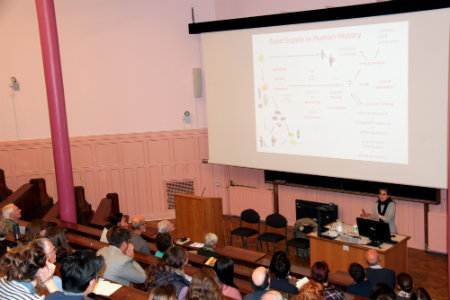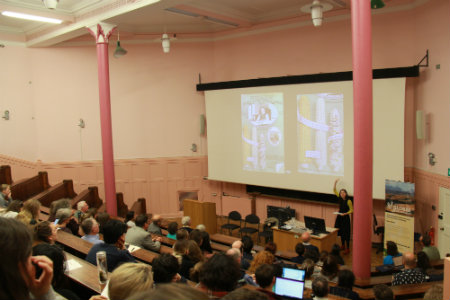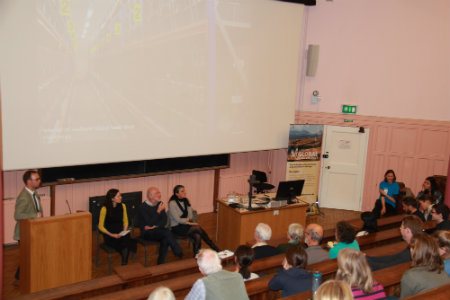
Kartika Shetty, Research Associate at the Sainsbury Laboratory, Cambridge University, reports.
On 23rd Oct, 2018, Cambridge Global Food Security hosted an event at the Cambridge Festival of Ideas, chaired by Dr David Nally with invited three speakers - Dr Helen Ann Curry (History & Philosophy of Science), Dr Inanna Hamati-Ataya (CRASSH) and Professor Martin Jones (Head, Department of Archaeology).
While Dr Nally laid the foundation for an interesting discussion on the impending food security crisis, each of the invited experts used their varied research backgrounds to give a perspective to the cultural, geographical and historical aspect of the problem.
Dr Hamati-Ataya explained how food security has been a recurring problem throughout human history, but is now of particular concern due to inflated urban living and unequal global development. She pointed out that current food policy makers need more rigorous knowledge while making impactful decisions.

Dr Curry introduced us to the history and development of seed banks, and also emphasised on the importance of maintaining agricultural biodiversity. What started as a practice to bring about uniformity in crop genetics to facilitate yield is also causing widespread crop disease and yield loss. She criticised the low awareness in conserving seed varieties and proposed improvement in cataloguing techniques.

The speakers later answered audience queries concerning decline of pollinating agents and the related conservation efforts, need for synergy between corporations, businesses, farmers and distributors. There was a vigorous discussion initiated by the curiosity to know whether the burgeoning population could be sustained using only organic/non-GM foods. To this the speakers had varied responses. Dr Curry strongly believed high yield varieties are readily available within the present diversity and could be sustainable with proper conservation, while Dr Hamati-Ataya and Professor Jones felt that new techniques in crop development may be considered. Dr Hamati-Ataya suggested more open-minded policy-making, conscious of the fact that humans have been invariably changing the world by mere existence. Hence conservation compounded by adapting to the change in food growth and consumption practices would be beneficial. With the advent in space exploration, one has to consider alternate/new-age technologies of growing and sustaining food supply if extra-terrestrial existence has ever to be realised. Meanwhile the present scientific inputs for agricultural reforms is mainly from private corporations and however altruistic their motives are, there will always be some disbelief due to the profiting nature of these establishments. Hence the definitive way forward is a more global collaboration between governing bodies, which would also be mindful of complexities such as population distribution and geopolitical issues.


